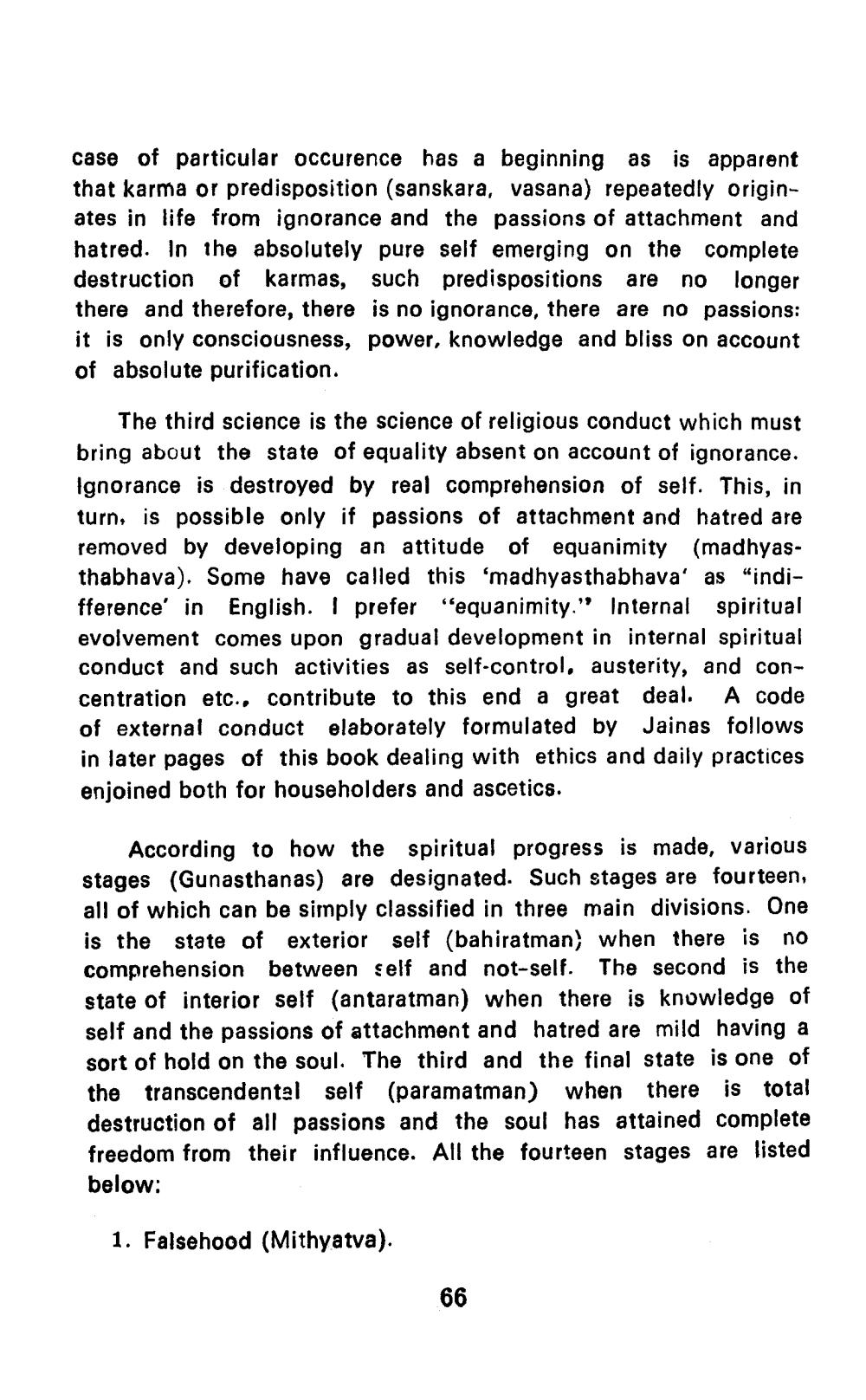________________
case of particular occurence has a beginning as is apparent that karma or predisposition (sanskara, vasana) repeatedly originates in life from ignorance and the passions of attachment and hatred. In the absolutely pure self emerging on the complete destruction of karmas, such predispositions are no longer there and therefore, there is no ignorance, there are no passions: it is only consciousness, power, knowledge and bliss on account of absolute purification.
The third science is the science of religious conduct which must bring about the state of equality absent on account of ignorance. Ignorance is destroyed by real comprehension of self. This, in turn, is possible only if passions of attachment and hatred are removed by developing an attitude of equanimity (madhyasthabhava). Some have called this 'madhyasthabhava' as "indifference in English. I prefer "equanimity." Internal spiritual evolvement comes upon gradual development in internal spiritual conduct and such activities as self-control. austerity, and concentration etc., contribute to this end a great deal. A code of external conduct elaborately formulated by Jainas follows in later pages of this book dealing with ethics and daily practices enjoined both for householders and ascetics.
According to how the spiritual progress is made, various stages (Gunasthanas) are designated. Such stages are fourteen, all of which can be simply classified in three main divisions. One is the state of exterior self (bahiratman) when there is no comprehension between self and not-self. The second is the state of interior self (antaratman) when there is knowledge of self and the passions of attachment and hatred are mild having a sort of hold on the soul. The third and the final state is one of the transcendental self (paramatman) when there is total destruction of all passions and the soul has attained complete freedom from their influence. All the fourteen stages are listed below:
1. Falsehood (Mithyatva).
66




